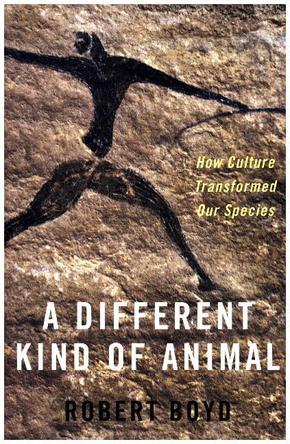Different Kind of Animal - How Culture Transformed Our Species
| Verlag | Princeton University Press |
| Auflage | 2017 |
| Seiten | 248 |
| Format | 14,9 x 21,6 x 2,3 cm |
| Gewicht | 444 g |
| Artikeltyp | Englisches Buch |
| ISBN-10 | 0691177732 |
| EAN | 9780691177731 |
| Bestell-Nr | 69117773EA |
Human beings are a very different kind of animal. We have evolved to become the most dominant species on Earth. We have a larger geographical range and process more energy than any other creature alive. This astonishing transformation is usually explained in terms of cognitive ability - people are just smarter than all the rest. But in this compelling book, Robert Boyd argues that culture - our ability to learn from each other - has been the essential ingredient of our remarkable success. A Different Kind of Animal demonstrates that while people are smart, we are not nearly smart enough to have solved the vast array of problems that confronted our species as it spread across the globe. Over the past two million years, culture has evolved to enable human populations to accumulate superb local adaptations that no individual could ever have invented on their own. It has also made possible the evolution of social norms that allow humans to make common cause with large groups of unrela ted individuals, a kind of society not seen anywhere else in nature. This unique combination of cultural adaptation and large-scale cooperation has transformed our species and assured our survival - making us the different kind of animal we are today.
Rezension:
"Robert Boyd is surely right that we are a different kind of animal.' We possess language, we have sophisticated trade and cooperation, but we are also frighteningly deceptive and prone to spasms of unspeakable violence. Boyd shows here in compelling style how our possession of culture - the passing on of learned information - explains the highs, lows, and contradictions in our behaviors."--Mark Pagel, author of Wired for Culture: Origins of the Human Social Mind

